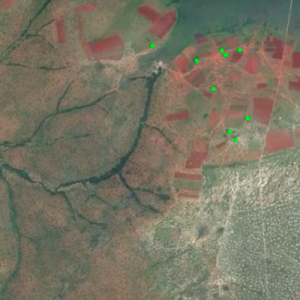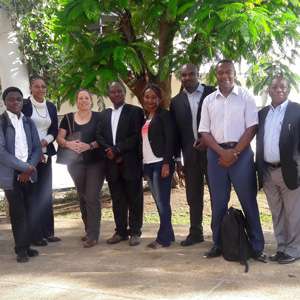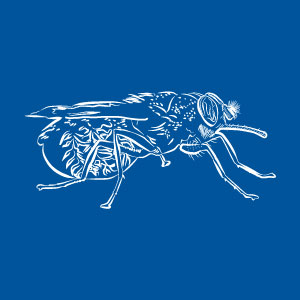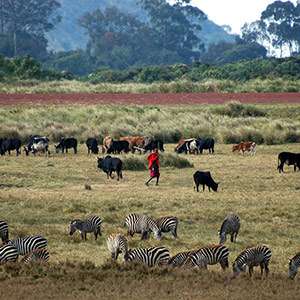

Tackling Sleeping Sickness in Maasai Communities
A powerful new mapping tool has been developed to help rural Tanzanians reduce their exposure to tsetse flies and the deadly disease they carry. Using this platform, members of the Maasai community will be able to identify grazing and drinking areas free from populations of infected tsetse flies. This is especially critical during the dry season, when drinking holes are scarce. The fly data will also help authorities target where to spray insecticides to control the population of these biting insects.
...Read Full Story
MSc Student conducts tests at the Vector and Vector-Borne Diseases Research Institute
From 18-20 May, an MSc student, Maria Simwango, conducted tests at the Vector and Vector-Borne Diseases Research Institute (VVBDRI) in Tanga, Tanzania. Ms Simwango was required to determine whether 88 samples (tsetse fly and cattle DNA samples) were positive for the Trypanosome parasites that are infective to humans.
...Read Full Story
Project C develops research uptake strategy
On 19-20 April 2016, the team from Project C held a consultative meeting with Julius Nyangaga of Right Track Solutions on behalf of WHO-TDR M&E support. The main agenda was to take stock of how much data had so far been gathered and analysed in order to begin preparations towards effective communication to stakeholders.
...Read Full Story
New opportunities for our two MSc graduates
Our two MSc graduates, Mr Meshack Saigilu and Ms Linda Salekwa, are taking advantage of exciting new opportunities in their fields. Mr Saigilu and Ms Salekwa spent one year with the project as research assistants after successful MSc graduation in 2014 from the Nelson Mandela African Institution of Science and Technology (NM-AIST).
...Read Full Story
PhD students attend data analysis training at Penn State University
Our two PhD students, Ms Happiness Nnko and Mr Anibariki Ngonyoka, are undergoing intensive training at Penn State University on data analysis under the mentorship of Professor Peter Hudson.
...Read Full Story
New project objective added to investigate the prevalence of the Trypanosome parasites in cattle
From our social survey and focus group discussions, it became evident that the livelihood of the Maasai people is completely intertwined with the health of their cattle. An additional project objective was therefore developed to investigate the prevalence of the Trypanosome parasites not only in tsetse flies (invertebrate hosts) but also in cattle (vertebrate hosts).
...Read Full Story
Video produced on research being conducted in Tanzania
The researchers from Project C, together with the WHO Communications team and the TDR VES (vectors, environment and society) team, have released an informative new video on the research being conducted in Tanzania. The release of this video coincides with the Conference of the Parties currently underway in Paris (COP21).
...Read Full Story
Completion of monthly monitoring of trypanosome infections in tsetse flies
Between July 2014 and November 2015, trypanosome infections in tsetse flies were monitored on a monthly basis. This was done using molecular techniques. To date we have found only animal-infective trypanosome species
...Read Full Story
Results from research over the past 12 months
Research over the past 12 months has shown that the Maasai community in the Simanjiro district possess a good level of knowledge on tsetse flies, but not on the disease risk to humans, as the majority of those interviewed had no previous exposure to this disease.
...Read Full Story